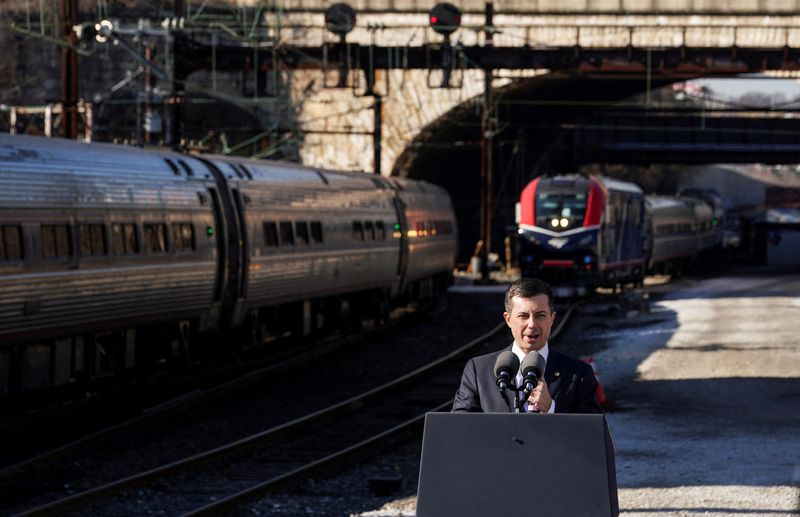By David Shepardson
(Reuters) - California's ambitious high-speed rail project that aims to move travelers from San Francisco to the Los Angeles basin in under three hours still faces significant funding challenges despite a $3.1 billion federal award.
The White House on Friday announced $8.2 billion in federal funding for rail projects across the country, including the California project billed at the first U.S. speed rail project with speeds of 220 miles per hour.
California Governor Gavin Newsom, who in October asked President Joe Biden to approve funding, said the award was "a vote of confidence in today’s vision and comes at a critical turning point, providing the project new momentum."
The administration also awarded $3 billion for a planned high speed rail line between Las Vegas and Los Angeles.
Transportation Secretary Pete Buttigieg told reporters Thursday the California project "is facing a lot of the challenges that come with being the very first at anything" and added winning rail awards faced an "extraordinary level of scrutiny."
The costs for the California high-speed rail project, which voters approved $10 billion in 2008, have risen sharply and the authority has not identified key funding needed for the project that has faced numerous delays.
The full San Francisco to Los Angeles project was initially estimated to cost around $40 billion but has now jumped to between $88 billion and $128 billion.
The rail authority estimated costs for an initial 171-mile segment connecting Merced to Bakersfield rose from $25.7 billion to at least $32 billion and is hoping initial service will begin in 2030.
The Obama administration awarded California $3.5 billion in 2010 and the state has dedicated another $4.2 billion to the project.

California wants $8 billion in total from the Biden administration for the project after recently winning another $202 million in federal funds for grade separation projects.
In 2021, the Biden administration restored funding for the California project after then-President Donald Trump pulled funding for the project, hobbled by delays and rising costs, calling it a "disaster." Many Republicans in Congress want to bar the White House from awarding more funding to the project.